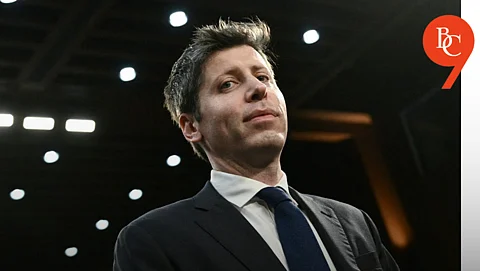

In the high-stakes world of artificial intelligence, where the battle for top talent is as fierce as the race for technological supremacy, a new chapter has unfolded. Sam Altman, CEO of OpenAI, has publicly stated that none of his “best people” were enticed by Meta’s jaw-dropping $100 million signing bonuses—a revelation that underscores the growing influence of purpose and culture over pure financial incentives in the tech industry.
Earlier this year, reports surfaced that Meta, led by Mark Zuckerberg, was aggressively courting OpenAI’s leading researchers and engineers. In an unprecedented move, Meta dangled signing bonuses of up to $100 million, aiming to attract the rare talent capable of building next-generation AI models. The offer sent shockwaves through Silicon Valley and sparked debates about the escalating arms race for artificial intelligence expertise.
Despite the allure of such massive payouts, Sam Altman has confirmed that OpenAI’s top minds have remained loyal. Speaking at a recent industry event, Altman remarked, “I’m really happy that, at least so far, none of our best people have decided to take them up on that.” He attributed this loyalty not to counter-offers or financial incentives, but to the unique mission and culture that OpenAI has cultivated.
“People here are driven by the impact of their work and the chance to shape the future of AI for good. That’s something money can’t buy,” Altman added.
OpenAI’s mission—to ensure that artificial general intelligence benefits all of humanity—has become a powerful magnet for top talent. Employees are drawn to the opportunity to work on cutting-edge projects with the potential to change the world, all within an environment that values collaboration, transparency, and ethical responsibility.
This sense of purpose, combined with the chance to work alongside some of the brightest minds in the field, has helped OpenAI weather the storm of aggressive poaching attempts from tech giants like Meta, Google, and Anthropic.
The tug-of-war for AI talent is intensifying as companies recognize that breakthroughs in artificial intelligence hinge on the creativity and expertise of a select few. While Meta’s $100 million offers made headlines, they also exposed the limitations of cash as a motivator at the highest echelons of innovation.
Industry analysts note that the best AI researchers are often motivated by intellectual challenge, the pursuit of meaningful impact, and the camaraderie of a like-minded team. OpenAI’s ability to retain its top talent in the face of record-breaking offers is a testament to the enduring power of mission-driven work.
As the AI revolution accelerates, the competition for talent will only become more intense. However, OpenAI’s example suggests that companies seeking long-term success must invest in culture, purpose, and values—not just compensation packages.
